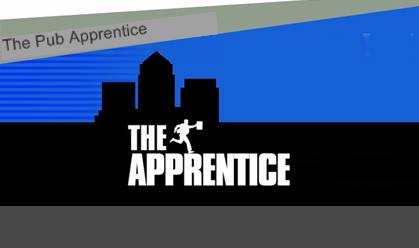Recruiting and training young people for the pub industry isn’t just about the short term needs of pubs, it’s about investing in the future of the industry and the long-term viability of pubs. If you’re thinking of taking on trainees then perhaps a pub apprentice or trainee might be the way forward for your pub business.
Offering apprenticeships, whilst requiring a great deal of effort by both the business offering the apprenticeship and the apprentice alike, can bring rewards for both which are long-lasting and of value to employee and employer. According to government research:
- 96% of employers that take on an apprentice report benefits to their business
- 72% of businesses report improved productivity as a result of employing an apprentice
- The average person completing an apprenticeship increases productivity by £214 a week. These gains include increased profits, lower prices and better products.
- Other benefits reported by around two-thirds of employers include improved products or services, new ideas being introduced to the organisation, better morale among staff and increased staff retention
I believe one crucial benefit is not included in their research that of an increased understanding of how to provide training to other members of staff (be they apprentices or not) which must be a positive outcome for all pub businesses.
An apprenticeship is a great way for people to earn a wage while they train in a real pub job, gaining a real qualification and laying the foundations for a successful career in hospitality. Depending on the business, an apprenticeship will take anywhere between one and four years to complete and whilst all apprenticeships have set content, you can create additional content to meet the needs of your pub. Most apprenticeships are delivered in conjunction with a training organisation, for instance a college or other training provider. (Charnwood for example)
Training organisations will claim any apprenticeship funding to deliver the learning and support your apprentice needs and do a number of things to support you, including advertising your apprenticeship vacancy, supporting the recruitment process, delivering training and assessment, and providing regular feedback on their performance.
In general, apprentices work for at least 30 hours a week. However, the number of hours an apprentice works each week can be reduced if the length of the apprenticeship programme is also extended. An apprentice must receive the appropriate minimum wage. [see separate article on National Minimum Wage)
If you are interested in employing an apprentice but cannot currently commit to the length of time needed for a full apprenticeship, an apprenticeship training agency (ATA) may be the right option for you. Apprenticeship training agencies offer a unique approach to recruiting apprentices as they recruit, employ and arrange training for apprentices on behalf of employers.
Group training associations (GTA) can generally be described as employer-led training organisations which can give small and medium-sized enterprises access to apprenticeships and training programs specific to their industry. Group training associations provide dedicated training facilities where the ‘off-the-job’ training elements of an apprenticeship can be delivered. They operate as companies limited by guarantee and registered charities. Members of a group training association not only benefit from support with recruiting and training apprentices, but also from reduced training costs, specialist or tailor-made training programs, networking opportunities, business advice and other services relating to their sector.
Funding
Training organisations will claim apprenticeship funding, on behalf of employers, for the training they provide to apprentices. The amount of funding for an apprenticeship depends on the job role and the age of the apprentice. From August 2013, apprentices aged 24 or over on an Advanced or Higher Apprenticeship will be offered an Advanced Learning loan. Employers will continue to make a contribution towards the costs of the apprenticeship, with the remaining costs being paid by the apprentice.
Apprenticeship Grant for Employers of 16 to 24 year olds
Employers that:
- have up to 1,000 employees;
- haven’t started an apprentice in the past 12 months; and
- want to take on an apprentice (or apprentices) aged 16 to 24;
may be able to get a grant of £1,500 per apprentice from the National Apprenticeship Service. The grant has been developed to support business growth by offering young people employment through apprenticeships.
For more information, go to the Gov.uk website.
Continue reading… page 2
